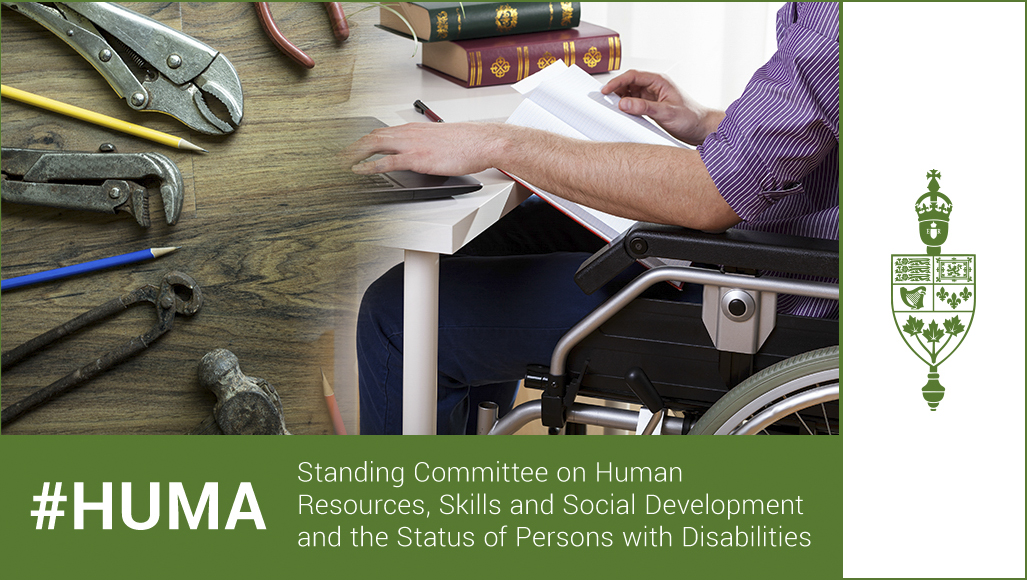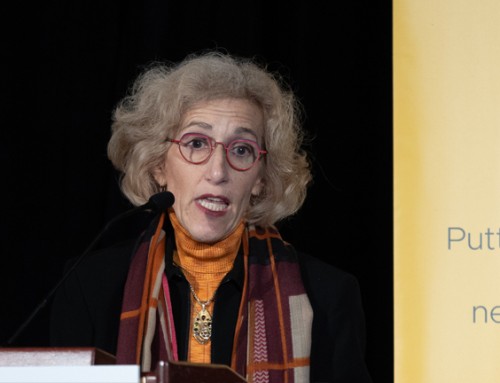
Photo from @HoCCommittees (Twitter)
In November 2022, Kids Brain Health Network and the Disability Policy Research Program (DiPO) at the University of Calgary’s School of Public Policy submitted a policy brief with recommendations to inform Bill C-22, the Canada Disability Benefit Act. The DiPO team is led by Dr. Jennifer Zwicker, Director of Health Policy at the School of Public Policy and Associate Professor at the Faculty of Kinesiology at the University of Calgary, and Deputy Scientific Officer of Kids Brain Health Network.
The Challenges
“Adults and youth with disabilities, including neurodevelopmental disabilities, experience disproportionately high poverty rates along with food and housing insecurity, increased risks of disease, and higher mortality rates,” says Dr. Zwicker. “A needs-based approach to eligibility for supports and services is essential to ensure that everyone in Canada requiring support is able to receive it, across the lifespan.”
Following the first reading of Bill C-22 in the House of Commons this summer, Dr. Zwicker and the DiPO team moved swiftly to develop a policy brief in support of Bill-C22—which is currently under consideration by the Standing Committee on Human Resources, Skills and Social Development and the Status of Persons with Disabilities (HUMA).
The purpose of the Canada Disability Benefit Act is “to reduce poverty and to support the financial security of persons with disabilities, by establishing the Canada disability benefit and making a consequential amendment to the Income Tax Act,” according to the HUMA Committee. “Considering the urgency around alleviating poverty for persons with disabilities,” the DiPO team’s policy brief states, “we support the Government’s proposed bill and recommend the bill be passed as quickly as possible and without delay.”
Recommended Solutions
Citing research that shows significant challenges faced by those living with disabilities, the brief also states: “Persons with disability in Canada […] experiencing poverty have additional needs and costs to reduce barriers to full participation in society.” Dr. Zwicker’s team put forth six recommendations to address these challenges, needs, costs and barriers:
- Using appropriate data and metrics of disability poverty for determining Canada Disability Benefit (CDB) amounts.
- Ensuring maximum access to the CDB by adopting a needs-based approach to eligibility.
- Lowering the definition of “working-age” from 18 to 15.
- Adopting a life-span approach to eligibility.
- Eligibility criteria for the CDB should be distinct from the Disability Tax Credit (DTC).
- Ensuring maximum access to the CDB by simplifying the application process.
- Considering and planning ahead for emergencies.
- Ensuring the supplementary nature of the CDB and avoiding clawbacks of other federal or provincial supports. The DiPO team also suggest a minor amendment to strengthen language to this effect.
- Ensuring a targeted engagement approach when designing the CDB, by giving people with lived experience an equal seat at the table.
During a meeting on December 7, Several HUMA committee members spoke to the importance of involving and hearing from the disability community. Dr. Zwicker and the DiPO team are urging the HUMA Committee to amend Bill C-22 with a timeframe of no more than 12 months for the regulatory process, to expedite the rollout of the Canadian Disability Benefit in 2024.
Read our complete Canada Disability Act policy brief.







